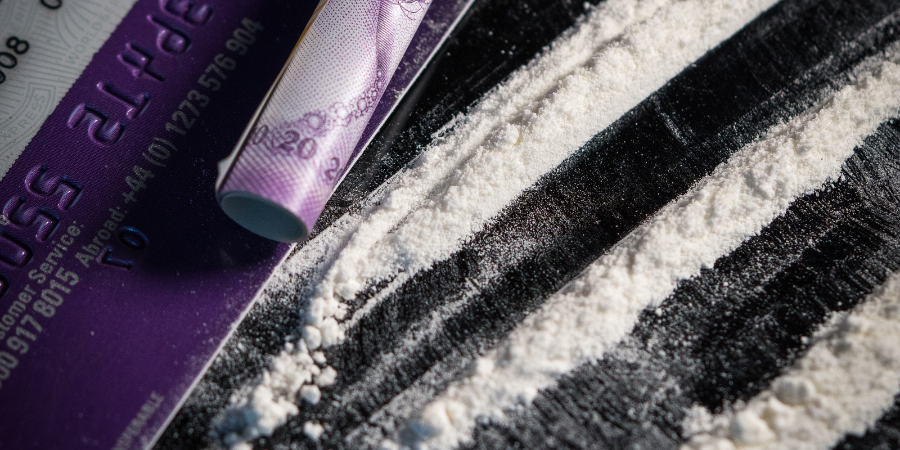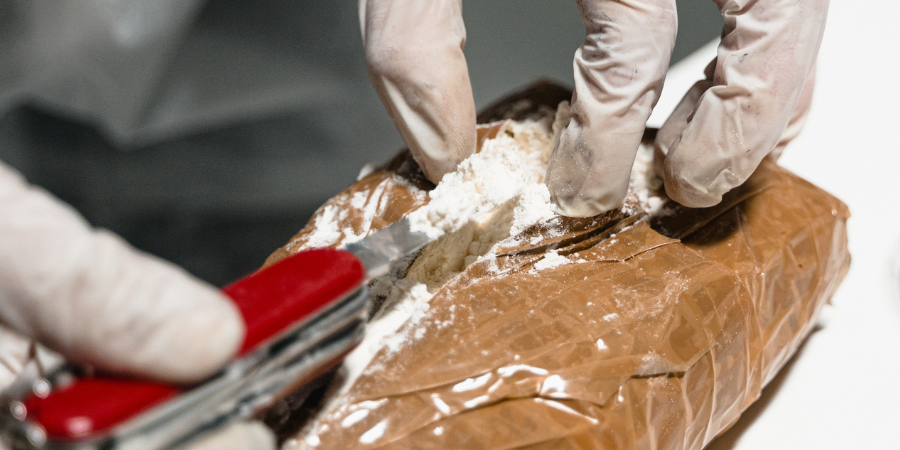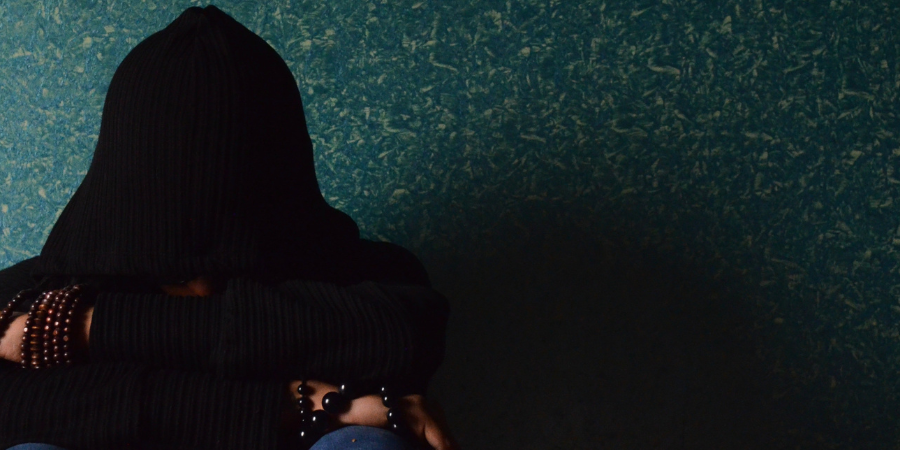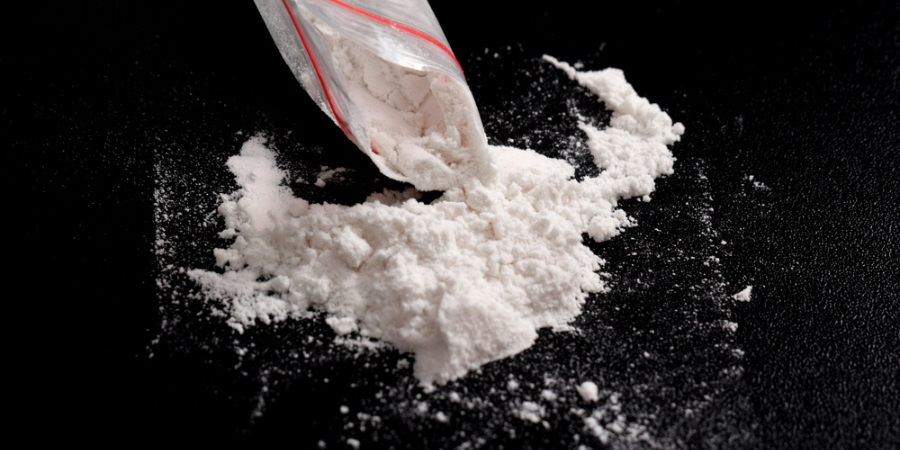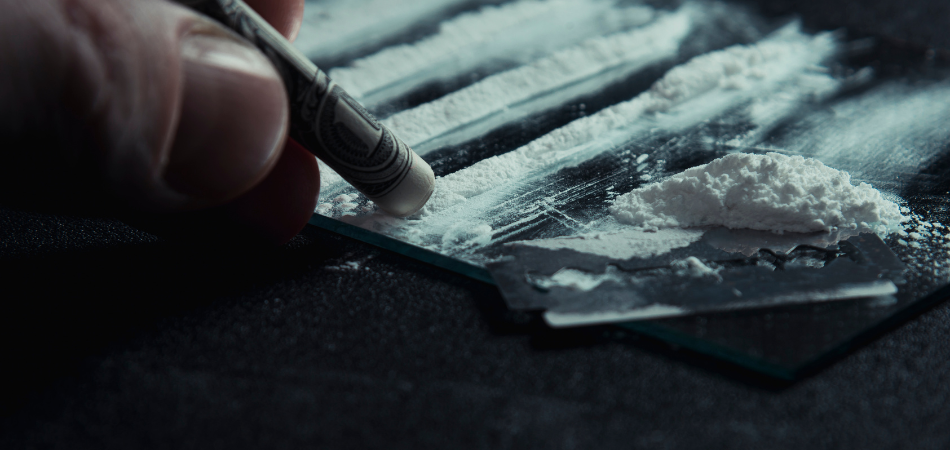
Written by:

Medically Reviewed by:
Last Updated:
August 13th, 2025
Cocaine Addiction | Definition, Symptoms and Effects
A serious problem in the UK, cocaine addiction can have a devastating impact on both the user and their families. Cocaine addiction is one of the most common conditions we treat at Primrose Lodge because the substance is so addictive.
There have been many cases where people have overcome their cocaine addiction and gone on to lead happy, healthy lives. On this page, we will explain how addiction to cocaine develops, the negative consequences of abuse and what you can do to get help for yourself or someone you love.
What is cocaine?
Cocaine is a white powder that is manufactured from the leaves of the South American coca plant. Chewing the leaves of the coca plant has been a part of the Andean culture for centuries because it produces a very mild stimulant effect and helps with altitude sickness.
However, when the leaves are processed to make cocaine, this stimulant effect is much more potent. The drug works by increasing the levels of dopamine in the brain, which produces feelings of pleasure. These effects are intense but short-lived, which is why people who abuse cocaine often do so in a binge pattern where they take the drug repeatedly over a short period of time to maintain the high.
Cocaine can be snorted, injected or smoked. Snorting is the most common method of taking cocaine in the UK because it produces a rapid high with many people becoming more confident, talkative and alert. Common street names for cocaine include coke, freebase, blow, snow, powder, nose candy, nuggets, rocks, sleet and gravel.
Why is cocaine addictive?
Cocaine addiction is a complex condition and there are various ways that you can become addicted. As a substance with no medical benefits, it is important to understand why different people take the drug in the first place and how this leads to addiction.
Why do people use Cocaine?
There are four main reasons why people take cocaine:
1. For pleasure
Cocaine produces intense feelings of euphoria, confidence and well-being. This is the most common reason why people abuse the drug and can lead to addiction very quickly.
2. To self-medicate
Some people use cocaine to escape from negative emotions and mental health conditions such as depression, anxiety or boredom. This is because cocaine numbs these emotions, at least temporarily.
3. For performance enhancement
There are other people who use cocaine to help them in work or social situations. They believe that the drug will make them sharper, more alert and better able to succeed.
4. To fit in
In some social situations, particularly those involving partying or nightlife, cocaine use is very common and peer pressure can lead to people taking the drug even if they don’t really want to.
Whatever the initial reason, cocaine is so mentally addictive that you will start to need more and more of the drug for the same effects. This is because the dopamine receptors in your brain become desensitised to the drug, meaning that you need larger and larger doses to produce the same high. This increased tolerance to cocaine can then lead to dependency, which means you are unable to function without the drug.
At this point, it can be incredibly difficult to stop taking cocaine because of the intense withdrawal symptoms that you will experience, which creates a cycle of abuse and addiction.
Symptoms of cocaine addiction
Addiction is adept at hiding in plain sight and will often trick you into thinking that there is no problem. It can cause you to lie to both yourself and those around you about your drug use which makes it difficult to identify, especially in the early stages.
There are, however, some key questions to ask yourself which may indicate cocaine addiction signs:
- Am I spending large amounts of money on cocaine even though I can’t afford it?
- Have I neglected important activities such as work, study or time with family and friends in order to use cocaine?
- Have I stolen or committed crimes to get money to buy cocaine?
- Am I frequently lying about my drug use or where I’ve been?
- Do I need more and more cocaine to get the same high?
- Do I experience unpleasant symptoms when I try to stop taking cocaine?
It is very important to spot these cocaine addiction signs in yourself and others and seek help immediately because the earlier you reach out for support, the better.
What are the negative health effects of cocaine addiction
Cocaine abuse can have a hugely negative impact on both your mental and physical health:
Short-term effects
- Confusion
- Anxiety
- Paranoia
- Restlessness
- Dangerously increased heart rate and blood pressure
- Nausea
- Erratic or violent behaviour
Long-term effects
The long-term effects of cocaine abuse can be even more damaging to your health, including:
- Weight loss/malnutrition
- Severe tooth decay
- Chronic nosebleeds
- Respiratory problems
- Sexual dysfunction
- Mood swings and mental health problems
- Toxic effects on your cardiovascular system
- Increased risk of stroke and seizures
- Heart attacks
- Increased risk of developing movement disorders like Parkinson’s disease
- Neurological problems and impairment of cognitive functions
Another aggravating factor is that cocaine is often mixed with other substances to bulk it out (known as ‘cutting’), so the dealer can make more money. These substances are often dangerous in their own right and can cause further serious health problems.
In addition to the adverse health effects, cocaine addiction can lead to social problems such as job loss, financial difficulties and relationship problems. It is also associated with an increased risk of criminal activity in order to get money to buy the drug or the risk of violence or robbery at the hands of drug dealers.
Cocaine addiction statistics in the UK
Cocaine is the second most commonly used drug in the UK after cannabis, with around 873,000 people aged between sixteen and fifty-nine using cocaine in 2019 alone. In fact, the UK has the highest rate of cocaine use for young adults in Europe, and with the Coronavirus Pandemic making addiction support services more difficult to access, these numbers have only increased in the subsequent years.
Hundreds of people in the UK die from cocaine abuse every year from poisoning, while the cocaine industry fuels violence, theft and many other crimes in the UK.
Can cocaine addiction be cured?
There is no cure for cocaine addiction in the traditional sense of the word. Drug addiction is a complex condition with many different factors, including psychological dependency, environmental triggers and physical changes to the brain.
That said, it is possible to overcome addiction with the right help and support. At Primrose Lodge, cocaine addiction is one of the most common drug addictions that we treat and with the NHS suffering badly from underfunding and oversubscription, the situation is only getting worse. This is why we offer a private cocaine addiction treatment service that can help you or your loved one to overcome their addiction and start the road to recovery.
Get in touch with us today to find out how we can help.
Common myths about cocaine
1. Cocaine use can be a good way to lose weight
False! While cocaine is an appetite suppressant, its harmful effects mean that it should never be used for weight loss.
2. Only selling cocaine is illegal
False! It is also illegal to buy, possess or use cocaine.
3. You can’t overdose on cocaine
False! People do die from cocaine overdoses every year.
4. Pure cocaine is safer than cocaine that has been cut with other substances
False! There is no such thing as safe cocaine use. In fact, pure cocaine is many times stronger than what most people will buy on the street, meaning that it is more likely to lead to an overdose.
Advice for friends and family
If you are worried about a loved one’s cocaine addiction, the most important thing that you can do is to get them help. This should start with sitting down and having a quiet conversation with them or even showing them this page. It is vital to stay calm and to choose a moment when they have not been using cocaine, as this could cause them to act irrationally or defensively.
As George Carlin, an American comedian with a long history of drug abuse explained:
“Cocaine was different. It kept saying, ‘You haven’t had enough.’ I became an abuser almost instantly”.
It is also important that you take care of yourself during this difficult time and not enable your loved one’s addiction by giving them money or covering up for them. Cocaine addiction can cause a person to act in an aggressive or manipulative way and it is important to remember that this is the addiction talking, not the person themselves. Even though it may cause further problems in your relationship, enabling them will only make things worse, so stay strong.
The next steps
If you are ready to take the first step on your cocaine rehab journey, make sure to contact us today and our team of experts will assist you.


